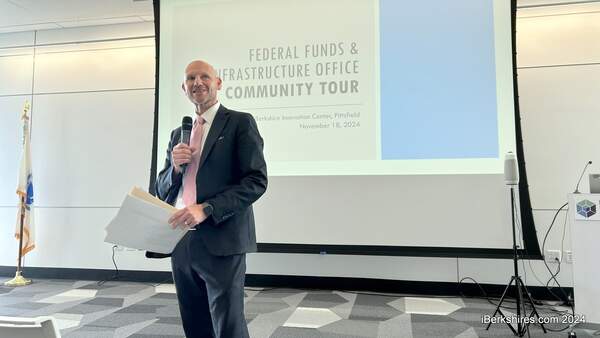Cannabis Marketing Challenges: What To Pay Attention To
Even though the cannabis industry has made a lot of progress toward legalization, there are still problems to solve. Problems with traditional marketing methods include a lack of education, trouble getting people to follow the rules, censorship on social media, and old stereotypes. But because the industry has made progress, there are many marketing opportunities in this increasingly competitive market. Strategic marketing for the cannabis industry requires
creativity, a deep understanding of censorship policies, and a willingness to stay up-to-date on
them.
That is why we recommend
this guide, which will help you know more about the list of problems that the cannabis industry is facing right now and the essential things to pay attention to.
Everything About Cannabis Is Always Changing
The cannabis industry is still young, even though marijuana has been around for a long time. The cannabis industry is constantly changing, and CBD brands that want to sell their products must keep up with these changes.
In the U.S., for example, each state has its own rules about how cannabis can be grown, sold, and used.
Because laws are constantly changing, it's hard for cannabis brands to market their products or businesses related to CBD.
Stigma
As more states legalize cannabis for medical and recreational use, society is slowly accepting it as a "normal" drug. But because cannabis has been illegal for a long time, no law can instantly change how people think about it.
Cannabis companies that want to market their products online must get past this stigma, which will take time.
Most Online Advertising Platforms Do Not Allow Ads for Cannabis
When selling cannabis online, you won't have as much freedom as in other industries. You could lose your account if you don't follow the rules of your preferred digital marketing platform.
Let's look at how the most powerful marketing platforms approach cannabis marketing, so you know what to expect and don't lose your account.
Facebook
Facebook's rules about ads say that illegal and recreational drugs can't be sold or used. But you can still run ads for cannabis on Facebook, and they will be approved. That's why you still see ads for pot all over Google and Facebook.
The trick is to make ads for a pot that won't get flagged. From what we know about social
media, these cannabis ads will be okay on Facebook:
-
Content that gives information or teaches: Instead of telling people about your products, you could teach them about CBD products and services.
-
Content that doesn't have a CTA to buy
As you can see, you need to
do keyword research, and then Facebook's Ad Manager will decide whether or not to let your cannabis ad run based on the media and language you use.
Google AdWords
Google has rules that make it hard for:
-
Promoting or advertising drug use for fun.
-
Putting up ads for goods or services that could encourage drug use.
-
Content that tells people how to get, make or use drugs for fun
The bad thing is that these rules also apply to places where cannabis can be used for fun. But it's not all bad because you can change the parts of your content that made Google flag your ad. Google's rules can be avoided if you don't discuss using the cannabis plant for fun.
Since Google uses automatic tools to track, approve, or flag ads, here are some tricks you can use when submitting your ads for approval to avoid being flagged:
-
Use the right keywords. Google will quickly flag your ad if you use words like "canna" in it. On the other hand, ads that use words like "hemp" or "cannabis" get past Google's censors.
-
More testing: There are many ways to advertise on Google's platform, such as with displayed ads, Google Shopping Ads, basic text ads, and Google Sponsored Promotions. Test your ads to make it more likely that they will be accepted.
-
Don't use any "trigger words": When Google bots check your cannabis ads, they look at more than just the content. Make sure there are no trigger words in your website, business name, or metadata description.
YouTube
Under its rules about harmful or dangerous content, YouTube doesn't allow content that tries to sell regulated or illegal goods or services directly or by linking to sites that do.
Some regulated or illegal things are prescription drugs, alcohol, online casinos, nicotine products, etc.
For a long time, YouTube seemed like a good place for people who wanted to sell cannabis. However, things have changed since YouTube started flagging cannabis-related channels without warning or explanation. In all these cases, YouTube said the channels in question broke its rules. In a strange twist, these channels didn't have any problems on the platform for many years and did well while in charge.
Most of these channels were later put back on YouTube, but some now warn users that their content may not be suitable for everyone before they watch it. So, users can choose whether to watch the video or not.
Instagram
When it comes to ads for drugs or products that are related to drugs, Instagram has the same rules as Facebook. So, Instagram's rules about ads say that you can't use or sell prescription, illegal, or recreational drugs.
If you don't follow these rules, Instagram might shut down your page.
You can still share cannabis content, though, just like you can on Google AdWords and Facebook (of course, depending on the type of content you post) Instagram has no major problems with informative and educational content, so posting will always be okay. But it's best not to put a call to action in your Instagram cannabis ad. When advertising cannabis on Instagram, it's a great idea to use influencers as part of your marketing plan.
Twitter
The Twitter policy makes it hard to promote drugs and things used to get high. Some of the things that are against the
Twitter policy are:
-
Drugs for fun and herbal drugs
-
Drug dispensaries
-
Illegal drugs
-
Accessories for drugs
-
Anything that gets people to use hard drugs
But Twitter does let CBD topical advertisers target the US as long as they meet these requirements:
-
Only selling legal CBD products that can't be eaten.
-
Carry the proper licenses and have been approved by Twitter.
-
Only sells cannabis products online in states where they have a license.
-
Abides by all laws and rules.
-
It is not for people under the age of 21.
-
If you follow the above rules, you will have less trouble running ads for cannabis on Twitter.
Conclusion
Keep this list in mind as you grow your business in the coming year. It's a good idea to think of ways to deal with all
marketing problems. The cannabis business is growing like never before, but you might be unable to beat your competitors if you don't deal with these common problems immediately. Keep up with your industry to stay ahead of your competitors, and be on the lookout for anything new that could change the way you do business in the coming year.


















